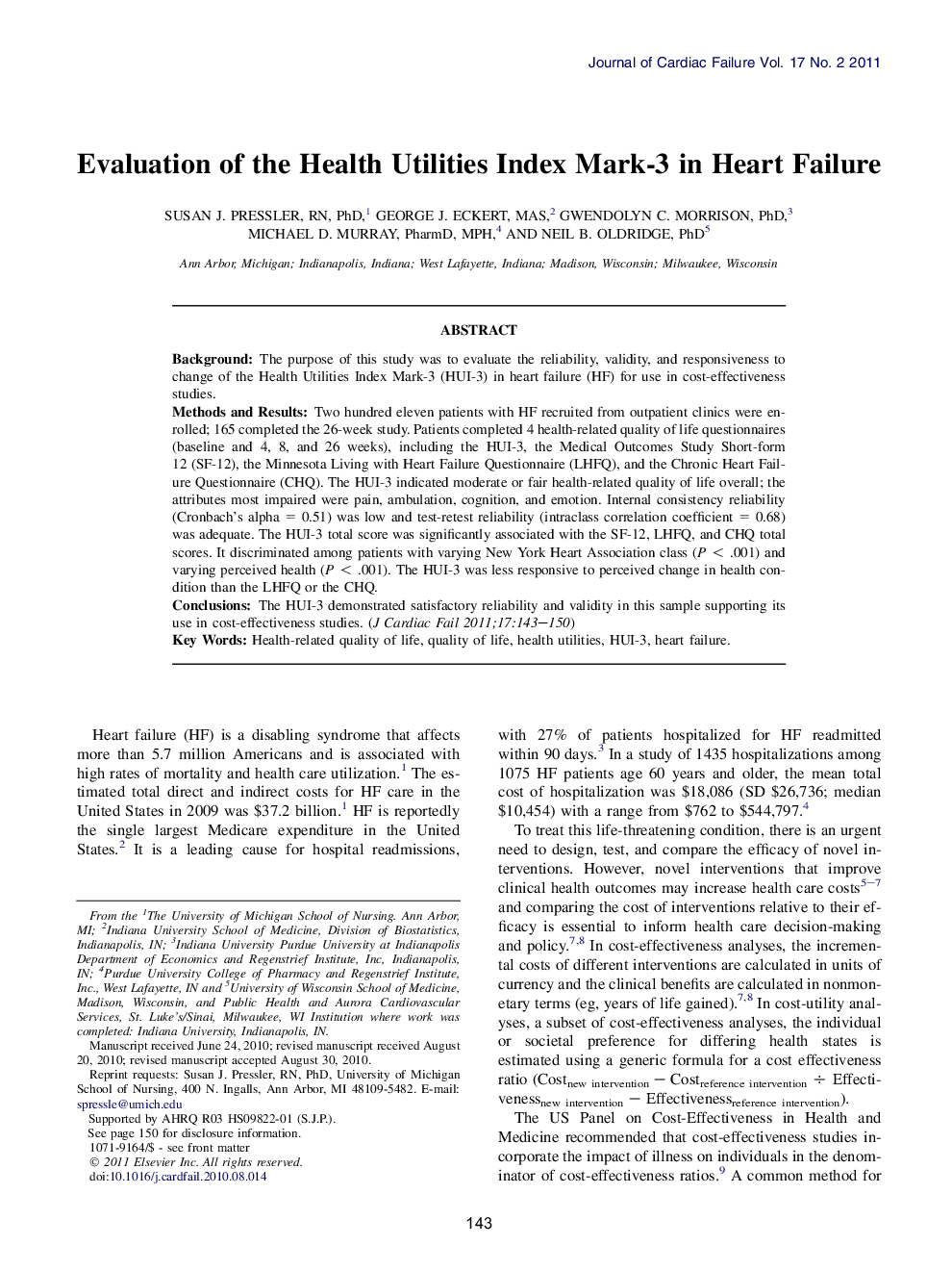| Article ID | Journal | Published Year | Pages | File Type |
|---|---|---|---|---|
| 2960792 | Journal of Cardiac Failure | 2011 | 8 Pages |
BackgroundThe purpose of this study was to evaluate the reliability, validity, and responsiveness to change of the Health Utilities Index Mark-3 (HUI-3) in heart failure (HF) for use in cost-effectiveness studies.Methods and ResultsTwo hundred eleven patients with HF recruited from outpatient clinics were enrolled; 165 completed the 26-week study. Patients completed 4 health-related quality of life questionnaires (baseline and 4, 8, and 26 weeks), including the HUI-3, the Medical Outcomes Study Short-form 12 (SF-12), the Minnesota Living with Heart Failure Questionnaire (LHFQ), and the Chronic Heart Failure Questionnaire (CHQ). The HUI-3 indicated moderate or fair health-related quality of life overall; the attributes most impaired were pain, ambulation, cognition, and emotion. Internal consistency reliability (Cronbach’s alpha = 0.51) was low and test-retest reliability (intraclass correlation coefficient = 0.68) was adequate. The HUI-3 total score was significantly associated with the SF-12, LHFQ, and CHQ total scores. It discriminated among patients with varying New York Heart Association class (P < .001) and varying perceived health (P < .001). The HUI-3 was less responsive to perceived change in health condition than the LHFQ or the CHQ.ConclusionsThe HUI-3 demonstrated satisfactory reliability and validity in this sample supporting its use in cost-effectiveness studies.
